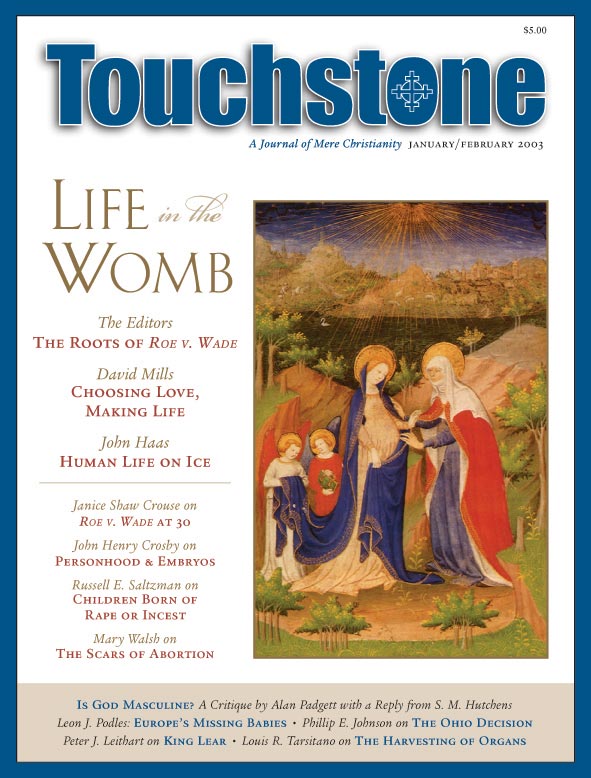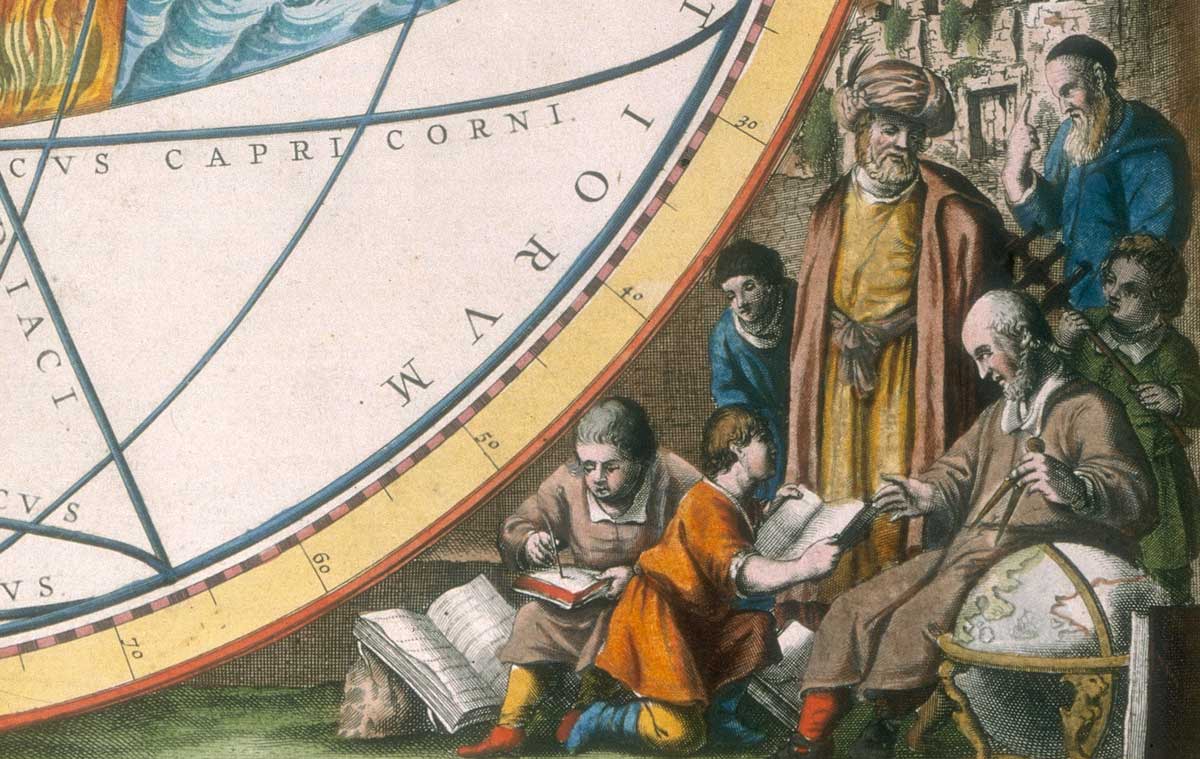The Imperatives of Ignorance
John Henry Crosby on Personhood & the Human Embryo
At the heart of the debates on embryonic stem-cell research and human cloning is the question of the status of the human embryo. Is the embryo a person, or is it not? This is ultimately the crucial question. Any philosophically adequate defense of the moral inviolability of the human embryo must begin with a defense of the “personhood” of the embryo, or at least a defense of the strong and morally binding likelihood that the embryo is indeed a person.
Defenders of the inviolability of the embryo, however, often consider the question superfluous, saying that to be a human being is to be a person. In their view, to be a person is nothing other than to be an individual member of the human species, an individual instance of human nature.
The Christian tradition also offers reasons for taking seriously the question of the inception of human personal life. Thomas Aquinas, for example, was a proponent of the so-called delayed animation theory (also known as delayed “hominization”), which teaches that God infuses the rational or intellectual soul at a point after conception has taken place. If so great a thinker as Aquinas could deny the personhood of the embryo, we cannot just take for granted the opposite position.
Something & Someone
Yet what does it mean to be a person? A simple way to get at this question is to consider the contrast between being something and being someone. The difference is revealed in the fact that we can be alone, even when surrounded by many things, not because a thing is nothing but because it is not someone. Togetherness requires at least two “someones.”
The question of personhood is crucial because of its ethical implications. Although non-persons, “non-someones,” are not without value, no one considers them morally inviolable. While most people do not think that we should torture animals, most also think that we can use animals for food and transportation without an affront to their dignity. On the other hand, it is almost universally acknowledged (and fundamental to the Western ethical tradition) that persons—someones—should not be used or exploited.
Now the difficulty with the embryo is that it does not reveal itself as a person, a someone. It reveals itself as a living organism (that is, capable of directing its own growth and integrating nourishment into itself ), but this does not make it a someone. The world is full of living organisms. They behave in the same manner as the developing embryo, and yet we would never say that they are persons. We all somehow understand that personhood is a “new” reality, not defined simply by being alive.
Biology only captures the objective, thing-like side of human life. The crucial question of whether or not the embryo is a person, a someone, is not one that can be answered just by pointing to the scientific facts. The question remains undecided by all that science has to say. We may presume that the embryo is a person, even love the embryo as a person, albeit a “slumbering person.” Still, deep as these convictions may run, the personhood of the embryo is not manifest in any indubitable way.
Is the embryo a person, a someone? The question can be concretely put: Was I, the someone who exists today, already present from the earliest moments of my being as a living organism, or did I begin at some point after my embryo came to be?
The truth is that we really cannot know, at least not with any demonstrable certainty. Some have taken this ambiguity about the onset of personhood as a reason to go ahead with lethal research. Such reasoning, however, is morally indefensible. Does our ignorance on a matter so fundamental entitle us to a carte blanche for whatever research we wish to pursue? Or, on the contrary, does what we do not know tell us what we, in fact, must do?
subscription options
Order
Print/Online Subscription

Get six issues (one year) of Touchstone PLUS full online access including pdf downloads for only $39.95. That's only $3.34 per month!
Order
Online Only
Subscription

Get a one-year full-access subscription to the Touchstone online archives for only $19.95. That's only $1.66 per month!
bulk subscriptions
Order Touchstone subscriptions in bulk and save $10 per sub! Each subscription includes 6 issues of Touchstone plus full online access to touchstonemag.com—including archives, videos, and pdf downloads of recent issues for only $29.95 each! Great for churches or study groups.
Transactions will be processed on a secure server.
more from the online archives
calling all readers
Please Donate
"There are magazines worth reading but few worth saving . . . Touchstone is just such a magazine."
—Alice von Hildebrand
"Here we do not concede one square millimeter of territory to falsehood, folly, contemporary sentimentality, or fashion. We speak the truth, and let God be our judge. . . . Touchstone is the one committedly Christian conservative journal."
—Anthony Esolen, Touchstone senior editor










